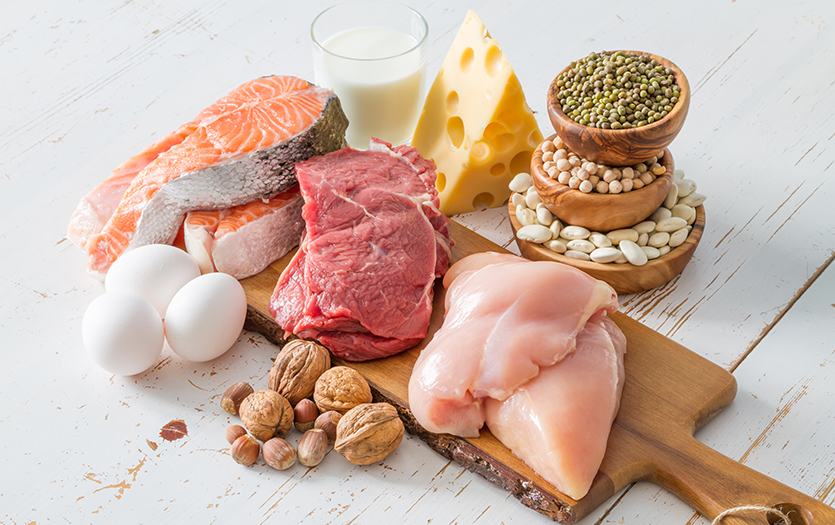
If you’ve ever taken prescription medication, then it’s almost certain that you’ve noticed the small instructions on the side of the bottle: “Take on an empty stomach,” or “Take with food”. These statements aren’t just guidelines, they are important directions that should be followed. Alissa Keillor, PharmD, Parkview Health, discusses the importance of understanding how medicines interact with the food you eat and its potential to alter the effectiveness of your medication.
Have you ever been told to take your medication on an empty stomach or with food?
Hundreds of medications have food-related dosing instructions because the food you consume can change how your body responds to certain medications. It’s important to understand these relationships and follow dosing instructions properly, so you can get the most out of your treatment while preventing unwanted side effects.
Understanding how medications and food interact
Consumption of food can trigger multiple physiological mechanisms in the stomach. These physiological changes can affect the amount of medicine that is absorbed from the stomach into the bloodstream. For example, certain medications shouldn’t be taken with food because it can decrease or delay the amount of the drug being absorbed. However, other medications need to be taken with food or even specific types of food to work better and have fewer side effects.
Medications to be taken with food
A common side effect that accompanies some medications is an upset stomach. Non-steroidal, anti-inflammatory drugs like ibuprofen, naproxen and aspirin are known for causing digestive discomfort, which is why these medications may have fewer side effects if taken with food. Other common medications that should be taken with food include:
- Allopurinol
- Baclofen
- Carbamazepine
- Diclofenac
- Divalproex sodium
- Hydroxychloroquine
- Indomethacin
- Ketorolac
- Lithium
- Metronidazole
- Potassium salts
- Prednisone
- Ritonavir
- Sevelamer
- Trazodone
- Valproic Acid
Medications to be taken without food
Not all medications are absorbed equally. Certain medications can’t incorporate well if there is food in your stomach, making the medication less effective. It’s best to ingest the following medicines on an empty stomach, preferably an hour before a meal or at least 2 hours after:
- Thyroid replacement medications (Levothyroxine)
- Medications used to treat bone loss (Alendronate, Ibandronate, Risedronate)
- Proton pump inhibitors used to treat stomach problems (Omeprazole, Lansoprazole, pantoprazole, or esomeprazole)
- Other common medications to avoid with food include Bisacodyl, Captopril, Cilostazol, Methotrexate, Mycophenolate, Repaglinide, Rifampin, Sucralfate
Avoid certain foods with these medications
Some medications only interact with certain types of foods and can change how your medications work. Below are a few common foods that may affect some medications (these lists are not all-inclusive):
- Calcium – Dairy products or foods high in calcium can reduce absorption and decrease the effectiveness of some antibiotics such as ciprofloxacin, levofloxacin, doxycycline, and minocycline. It’s important to take these medications 2 hours before or 4 hours after eating foods high in calcium.
- Vitamin K – Green leafy vegetables high in vitamin K, such as spinach, kale and romaine lettuce, can decrease the “blood-thinning” effect of the medication, warfarin. You don’t need to avoid eating these foods while on warfarin just stay consistent with the amount you eat per week.
- Grapefruit – this citrusy fruit can decrease the ability of the body to process certain medications causing unwanted side effects. It’s best to avoid grapefruit if you are taking atorvastatin, simvastatin or lovastatin to treat high cholesterol and if you are taking warfarin.
Final tips
No matter your medication regimen, consistency is vital. It’s important to take extreme caution around the holidays and celebrations because eating habits and schedules tend to vary, thwarting medication effectiveness. Sticking with a consistent routine will allow you to get the most out of your medications.
Also, be sure to read all your labels, dosing instructions and patient information that accompany your medication bottles. When in doubt, speak with your primary care provider or pharmacist if you have any questions or concerns regarding your medications.




